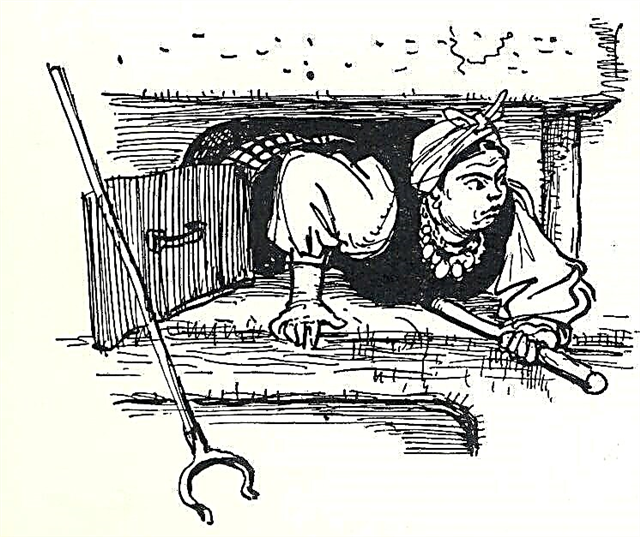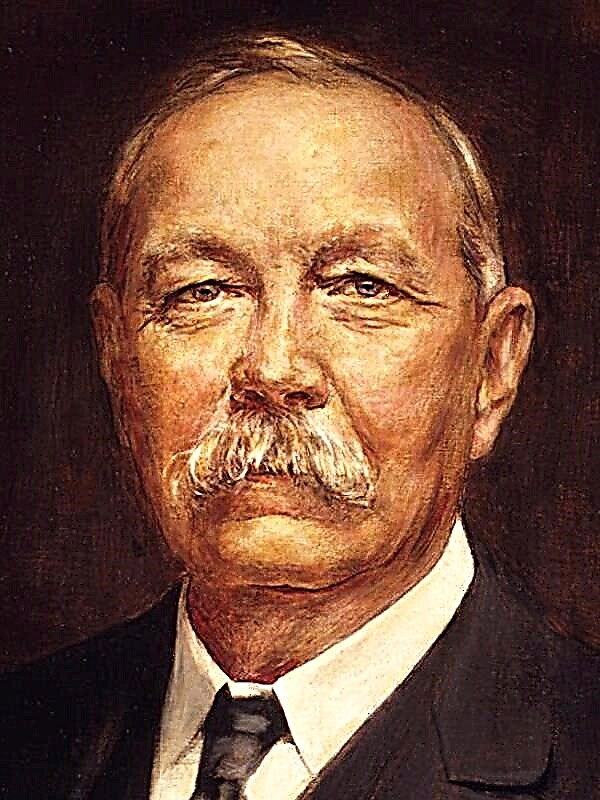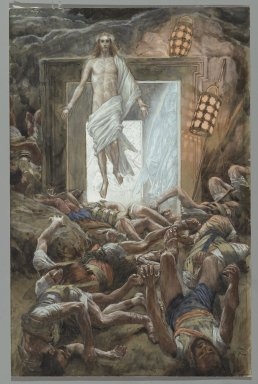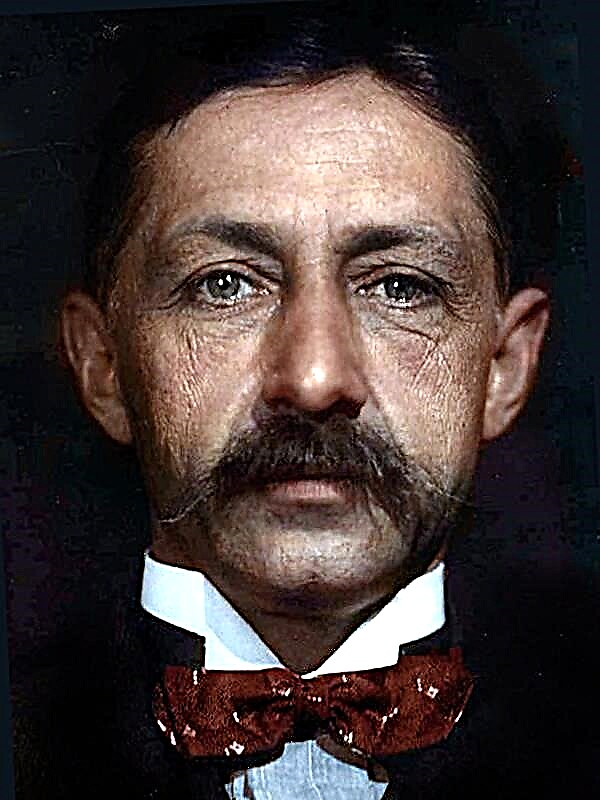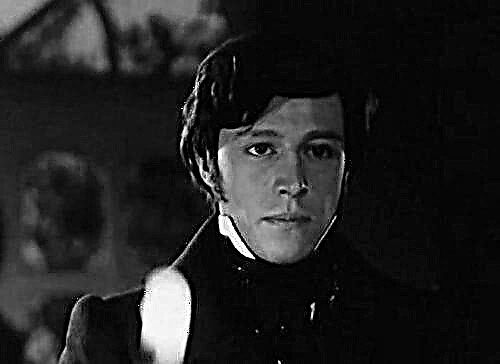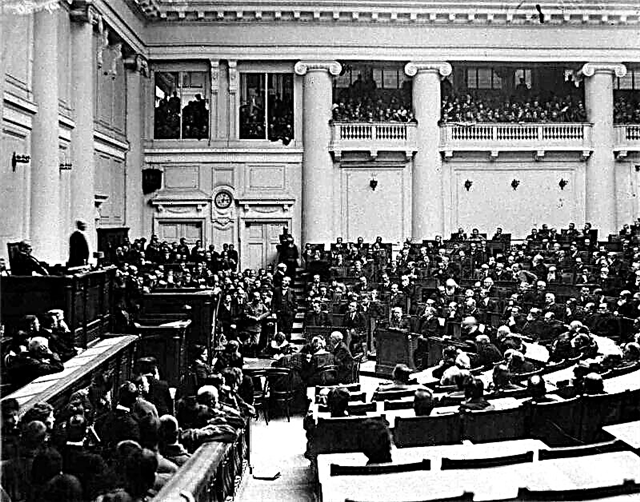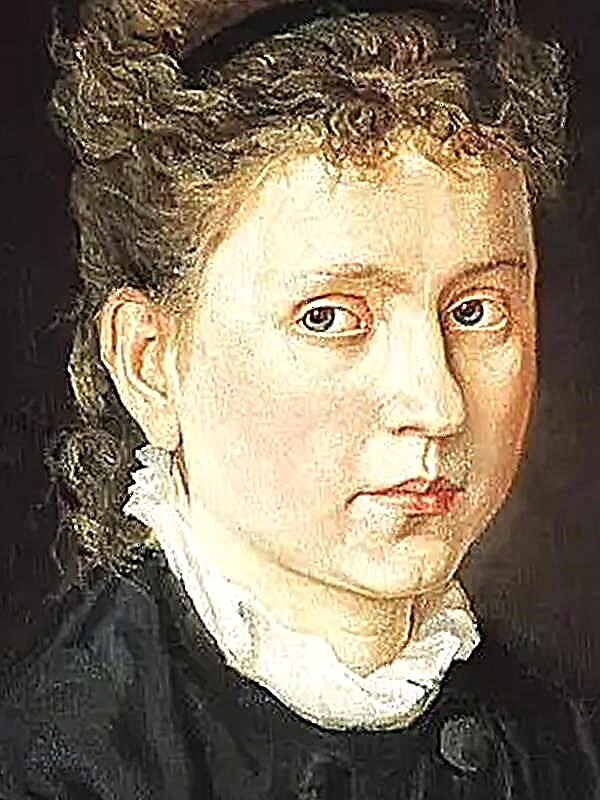When the age of heroes began on earth, the gods very often went to mortal women, so that heroes were born from them. Another thing is the goddesses: they only very rarely went to mortal husbands to give birth to sons from them. So from the goddess Thetis was born the hero of the "Iliad" - Achilles; So from the goddess Aphrodite was born the hero of "Aeneid" - Aeneas.
The poem begins in the middle of the path of Aeneas. He swims west, between Sicily and the northern coast of Africa - where the Phoenician natives are building the city of Carthage just now. It was here that a terrible storm came upon him, sent by Juno: at her request, the god Aeolus set free all the winds subject to him. “Clouds of sudden sky and light steal from your eyes, / The darkness fell upon the waves, the thunder struck, the lightning shone, / The inevitable death appeared to the Trojans everywhere. / The ropes groan, and scouts fly after the shipbuilders. / The cold of Aeneas shackled, he lifts his hands to the luminaries: / “Three times, four times he is blessed, who is under the walls of Troy / In front of the eyes of the fathers in battle he met death! ..”
Aeneas rescues Neptune, which disperses the winds, smoothes the waves. The sun is clearing, and the last seven ships of Aeneas from the last forces rake to an unfamiliar shore.
This is Africa, the young Queen Dido rules here. The evil brother drove her out of distant Phenicia, and now she and her flight companions are building the city of Carthage in a new place. “Happy are those for whom strong walls are already rising!” - exclaims Aeneas and marvels at the newly built Temple of Juno, painted with paintings of the Trojan War: the rumor about it has already reached Africa. Dido affably welcomes Aeneas and his companions - fugitives like herself. A feast is celebrated in honor of them, and at this feast Aeneas leads his famous tale of the fall of Troy.
For ten years, the Greeks could not take Troy by force and decided to take it by cunning. With the help of Athena-Minerva, they built a huge wooden horse, hid their best heroes in its hollow womb, and left the camp themselves and hid behind the nearby island with the whole fleet. There was a rumor: it was the gods who stopped helping them, and they sailed home, putting this horse as a gift to Minerva - a huge one so that the Trojans would not bring him into the goal, because if they had a horse, they themselves would go to war in Greece and gain victory. Trojans rejoice, break a wall, import a horse through a breach. Seer Laocoon conjures them not to do this - “fear the enemies, and the gifts that bring!” - but two gigantic Neptune snakes come up from the sea, pounce on Laocoon and his two young sons, strangle with rings, poison with poison: after this there is no doubt, Horse in the city, night falls on the Trojans tired of the holiday, Greek leaders slip out a wooden monster, Greek troops inaudibly swam over the island - an enemy in the city.
Aeneas slept; in a dream, Hector appears to him: “Troy died, run, look for a new place across the sea!” Aeneas runs up to the roof of the house - the city burns from all ends, the flame flies up to the sky and is reflected in the sea, screams and groans from all sides. He calls his friends for the last battle: “For the vanquished, salvation is one thing - do not dream of salvation!” They fight in the narrow streets, the princess Cassandra is dragged before their eyes, the old king Priam perishes before their eyes - “the head is cut off from the shoulders, and the body is cut off without a name”. He seeks death, but his mother Venus appears to him: “Troy is doomed, save father and son!” Aeneas's father - decrepit Ankhis, son - Askaniy-Yul boy; with a powerless old man on his shoulders, leading a powerless child by the hand, Aeneas leaves the crumbling city. With the surviving Trojans, he hides on a wooded mountain, builds ships in the far bay and leaves his homeland. Need to swim, but where?
Six years of wandering begin. One shore does not accept them; on the other a plague rages. At sea crossroads, monsters of old myths rage - Skilla with Charybdis, predatory harpies, one-eyed cyclops. On land there are mournful encounters: here is a bush oozing with blood on the grave of a Trojan prince, here is the widow of the great Hector, who suffered in captivity, here is the best Trojan prophet languishing in a distant foreign land, here is a lagging soldier of Odysseus himself - abandoned by his own people, he is beaten to his former enemies. One oracle sends Aeneas to Crete, the other to Italy, the third threatens with hunger: “You will eat your own tables!” - the fourth orders to descend into the kingdom of the dead and there to learn about the future. In the last parking lot, in Sicily, the decrepit Anchis dies; further - the storm, the Carthaginian coast, and the story of Aeneas ends.
The affairs of the people are watched by the gods. Juno and Venus do not like each other, but here they shake hands: Venus does not want further trials for her son, Juno does not want Rome to rise in Italy, threatening her with Carthage - let Aeneas remain in Africa! The love of Dido and Aeneas, two exiles, the most human in all of ancient poetry, begins. They unite in a thunderstorm, during a hunt, in a mountain cave: lightnings for them instead of torches, and groans of mountain nymphs instead of a wedding song. This is not good, because Aeneas wrote a different fate, and Jupiter is watching this fate. He sends in a dream to Aeneas Mercury: “Do not dare to delay, Italy is waiting for you, and Rome is waiting for your descendants!” Aeneas suffers painfully. “The gods say - I will not leave you with my will! ..” he says to Didone, but for a loving woman these are empty words. She prays: “Stay!”; then: “Slow down!”; Then: “Fear! if there will be Rome and there will be Carthage, then there will be a terrible war between your and my descendants! ” In vain. She sees from the palace tower the distant sails of the Aeneas ships, puts down a funeral pyre in the palace and, having risen upon it, throws herself on a sword.
For the sake of the unknown future, Aeneas left Troy, left Carthage, but that is not all. His comrades are tired of wandering; in Sicily, while Aeneas celebrates commemorative games on the grave of Anchis, their wives light the Aeneas ships to stay here and not go anywhere. Four ships die, they remain tired, on the last three Aeneas reaches Italy.
Here, near the foot of Vesuvius, is the entrance to the kingdom of the dead, here lies the decrepit prophetess Sibyl, Aeneas. Aeneas descends underground with a magical golden branch in his hands: as Odysseus asked Tiresias shadow about his future, so Aeneas wants to ask the shadow of his father Anchis about the future of his descendants. He crosses the Aid River Styx, because of which there is no return to people. He sees a reminder of Troy - the shadow of a friend mutilated by the Greeks. He sees a reminder of Carthage - the shadow of Dido with a wound in his chest; he says: “Against your will, I, the queen, have left the coast! ..” - but she is silent. To his left is Tartarus, there sinners are tormented: the godless, father-killers, oath-criminals, traitors. To his right is the field of the Blessed, where his father Anchis awaits. In the middle is the river of oblivion of Summer, and souls circling over it whirlwind, which are destined to purify themselves in it and come into the world. Among these souls, Anchis points out to his son the heroes of the future of Rome: Romulus, the founder of the city, and Augustus, his regenerator, and lawmakers, and tyrant fighters, and everyone who will establish Rome’s authority over the whole world. Each people has its own gift and duty: to the Greeks - thought and beauty, to the Romans - justice and order: “Let the inspired copper be forged better by others, / I believe; let the faces living from marble be known, / They will speak more beautifully in the courts, the movements of the sky / They will determine the compass, call the rising stars; / Yours, Roman, duty - to rule sovereignly by the peoples! / Here are your arts: to prescribe laws to the world, / To subjugate and overthrow the disobedient ".
This is a distant future, but on the way to it is a near future, and it is not easy. “You suffered at sea - you will suffer on land,” says Aeneas Sibyl, “a new war awaits you, a new Achilles and a new marriage with a stranger; “But in spite of the trouble, do not give up and walk more boldly!” The second half of the poem begins, behind the Odyssey - the Iliad.
At the bottom of the road from the Sibylline Hades places - the middle of the Italian coast, the mouth of the Tiber, the region of Latsy. Here lives the old wise king Latin with his people - Latins; next - a tribe of Rutuli with the young hero Thurn, a descendant of the Greek kings. Aeneas arrives here; after landing, tired travelers have supper, laying vegetables on flat cakes. Ate vegetables, ate flat cakes. “There are no tables left!” - jokes Jul, son of Aeneas. “We are on target! - exclaims Aeneas. - The prophecy came true: “you will eat your own tables.” We did not know where we were sailing - now we know where we sailed. ” And he sends ambassadors to King Latina to ask for peace, union, and the arms of his daughter Lavinia. Latin is glad: the forest gods have long told him that his daughter will marry a stranger and their offspring will conquer the whole world. But the goddess Juno is furious - her enemy, the Trojan, defeated her strength and is about to erect a new Troy: “Be war, be common blood between father-in-law and son-in-law! If I don’t persuade the heavenly gods, I will raise up the underworld! ”
There is a temple in Lacy; when the world - its doors are locked; when the war is open; With the push of his own hand, Juno opens the iron doors of war. When hunting, Trojan hunters mistakenly hunted a tsar’s hand deer; now they are not Latins, but enemies. King Latin in despair composes power; the young Thurn, who had wooed himself to the princess of Lavinia, and now rejected, collects a mighty army against the aliens: here is the giant Mezenius, and the invulnerable Messap, and the Amazon Camilla. Aeneas also seeks allies: he swims along the Tiber to where Tsar Evander, the leader of the Greek settlers from Arcadia, lives on the site of the future Rome. Cattle graze at the future forum, blackthorn grows at the future Capitol, the king treats the guest in a poor hut and gives him four hundred fighters to help, led by his son, young Pallant. Meanwhile, Aeneas’s mother, Venus, descends to the forge of her husband Vulcan to forge her son with divinely strong armor, like Achilles once. On the shield of Achilles the whole world was depicted, on the shield of Aeneas - the whole of Rome: a she-wolf with Romulus and Remus, the abduction of the Sabine women, the victory over the Gauls, the criminal Catilina, the valiant Cato and, finally, the triumph of Augustus over Anthony and Cleopatra, vividly memorable to the readers of Virgil. "Glad Aeneas on the shield of the paintings, not knowing the events, and lifts his shoulder and glory, and the fate of posterity."
But while Aeneas is far away, Thurn with the Italian army approaches his camp: “As the ancient Troy fell, so let the new one fall: for Aeneas is his fate, and for me is my fate!” Two Trojan friends, the brave and handsome Nis and Erial, go on a night outing through an enemy camp to get to Aeneas and call him for help. In the moonless darkness they make their way among the sleeping enemies with silent blows and go out onto the road - but here at dawn their enemy detachment catches. Eurial is captured, Nis - one against three hundred - rushes to his rescue, but dies, the heads of both are raised to their peaks, and the furious Italians go on the attack. Thurn sets fire to Trojan fortifications, breaks into a gap, destroys dozens of enemies, Juno breathes force into him, and only the will of Jupiter puts a limit to his success. The gods are thrilled, Venus and Juno blame each other for a new war and stand up for their favorites, but Jupiter stops them with a wave: “If the war is started,“ ... let everyone have a share / Battle troubles and successes: Jupiter is the same for everyone. / Rock will find a way. ”
Meanwhile, Aeneas finally returned with Pallant and his squad; young Askaniy-Yul, son of Aeneas, rushes out of the camp on a sortie to meet him; the troops are uniting, a general battle is boiling, chest to chest, foot to foot, as once under Troy. The fiery Pallant rushes forward, makes a feat after a feat, finally converges with the invincible Thurn - and falls from his spear. Thurn tears off his belt and bandage, and his body in armor noble allows his comrades to take him out of battle. Aeneas rushes to avenge, but Juno saves Thurn from him; Aeneas converges with the fierce Mezentius, wounds him, the young son of Mezenia Love obscures his father, both die, and the dying Mezenius asks to bury them together. The day ends, two troops bury and mourn their fallen. But the war continues, and the youngest and most flourishing are still the first to die: after Nis and Evrial, after Pallant and Lavs, the turn of the Amazon of Camilla comes. Having grown up in the woods, dedicated herself to the hunter Diana, she fights with the bow and poleax against the advancing Trojans and dies, hit by a dart.
Seeing the death of his fighters, hearing the mournful sobs of old Latina and young Lavinia, feeling the coming rock, Thurn sends a messenger to Aeneas: "withdraw the troops, and we will solve our argument by fight." If Thurn wins, the Trojans leave to look for a new land, if the Aeneas - Trojans establish their city here and live in alliance with the Latins. Altars were set, sacrifices were made, oaths were made, two troop formations stood on two sides of the field. And again, as in the Iliad, the ceasefire suddenly ends. There is a sign in the sky: an eagle flies onto a swan flock, snatches prey from it, but a white flock falls on all sides of the eagle, makes him throw the swan and takes to flight. “This is our victory over the alien!” Cries the Latin fortuneteller and throws his spear into a Trojan order. The troops rush at each other, a general battle begins, and Aeneas and Thurn search in vain for each other in the fighting crowds.
And from heaven, Juno is looking at them, suffering, also feeling upcoming rock. She turns to Jupiter with a last request:
“Whatever happens by the will of fate, and yours — but do not let the Trojans impose their name, language, and character on Italy! Let Lacy be Latsy and Latins Latins! Troy died - let the name of Troy perish! ” And Jupiter answers her: "So be it." From the Trojans and Latins, from the Rutulians, Etruscans, and the Evandra Arcadians, a new people will appear and spread its glory all over the world.
Aeneas and Thurn found each other: "they knocked together, a shield with a shield, and the ether is filled with thunder." Jupiter stands in the sky and holds the scales with the lots of two heroes on two bowls. Thurn strikes with a sword - the sword breaks on a shield forged by Vulcan. Aeneas strikes a spear - the spear pierces Turnu and the shield and the carapace, he falls, wounded in the thigh. Raising his hand, he says: “You have won; the princess is yours; I’m not asking for mercy for myself, but if you have a heart in you, take pity on me for my father: and you had Anchis after all! ” Aeneas stops with his sword raised - but then his eyes fall on his belt and Turn's band, which he took from the dead Pallant, a short-lived Eneyev friend. “No, you will not leave! Pallant avenges you! " - exclaims Aeneas and pierces the heart of the enemy; "And seized by the mortal cold / The body has left life and flies away with a groan to the shadows."
Thus ends the Aeneid.

